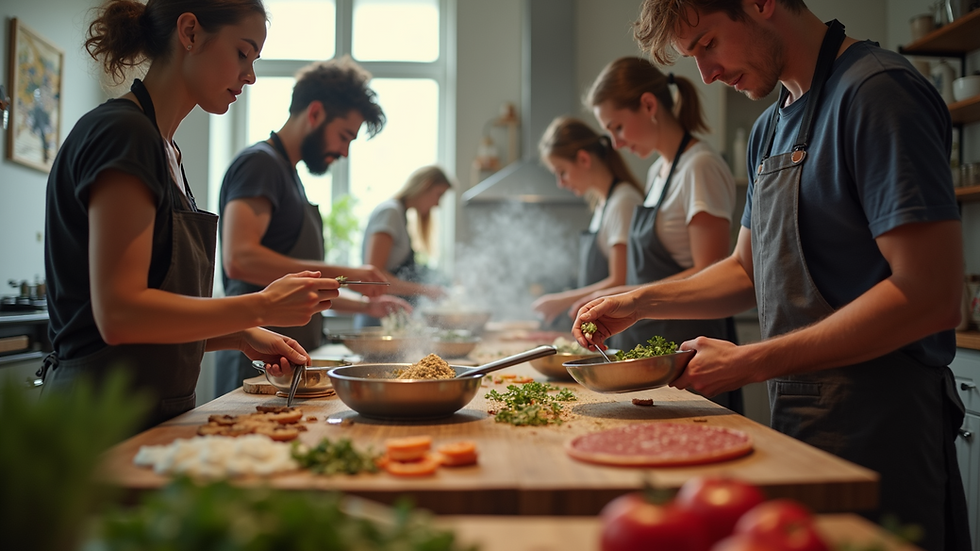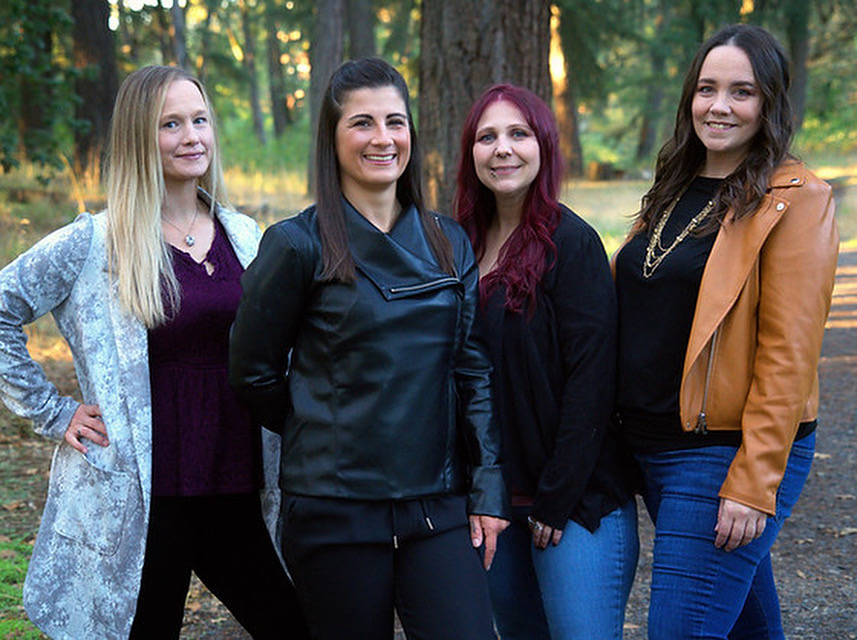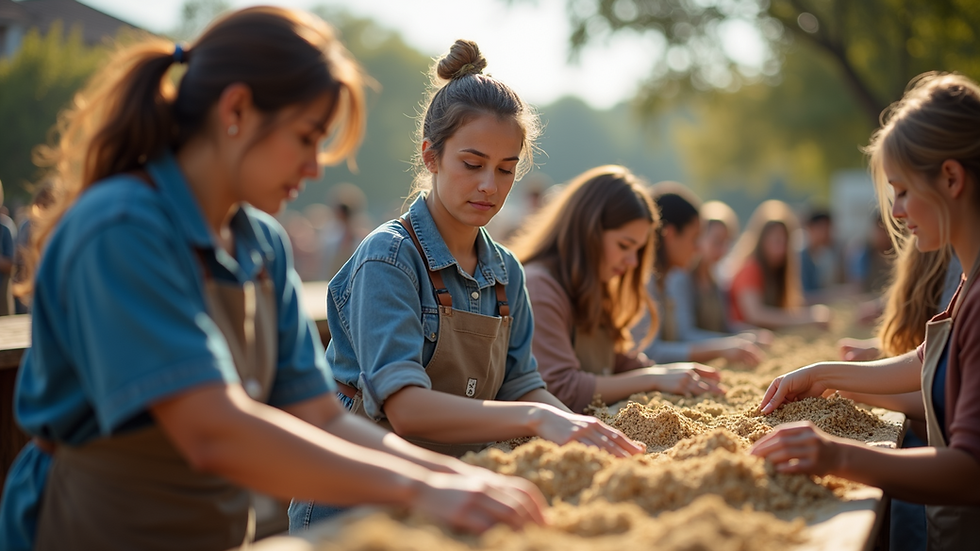Building Community: Skills Workshops for Healing
- Alexandra Canfield
- Aug 19, 2025
- 4 min read
In today's fast-paced world, many people feel isolated and disconnected. The importance of community cannot be overstated, especially when it comes to healing. Skills workshops offer a unique opportunity to bring people together, fostering connections while teaching valuable skills. These workshops can be a powerful tool for personal growth and collective healing.
The idea of learning something new while connecting with others is appealing. Imagine a space where you can share experiences, learn from one another, and build lasting relationships. This is the essence of skills workshops. They create an environment where healing can take place, both individually and collectively.
The Power of Community
Community is more than just a group of people. It is a network of support, understanding, and shared experiences. When individuals come together, they create a safe space for vulnerability and growth. This is especially important for those who have faced trauma or hardship.
Benefits of Community Healing
Emotional Support: Being part of a community provides emotional backing. Sharing stories and experiences can lighten the burden of personal struggles.
Shared Learning: Workshops allow participants to learn from each other. This exchange of knowledge can lead to new insights and perspectives.
Increased Confidence: Engaging in group activities can boost self-esteem. As individuals learn new skills, they gain confidence in their abilities.
Sense of Belonging: Community fosters a sense of belonging. Knowing that others share similar experiences can be comforting and empowering.
Types of Skills Workshops
There are many types of skills workshops that can promote healing. Here are a few examples:
1. Art Therapy Workshops
Art therapy workshops encourage self-expression through creativity. Participants can explore their feelings and emotions by creating art. This process can be therapeutic and healing.
Activities: Painting, drawing, and sculpting are common activities. Participants can express their emotions without the need for words.
Benefits: Art can help individuals process trauma and express feelings that may be difficult to articulate.
2. Mindfulness and Meditation Workshops
Mindfulness and meditation workshops teach participants how to be present in the moment. These practices can reduce stress and anxiety, promoting overall well-being.
Activities: Guided meditations, breathing exercises, and mindfulness practices are often included.
Benefits: Participants learn to manage their thoughts and emotions, leading to a greater sense of peace.
3. Cooking and Nutrition Workshops
Cooking workshops can be a fun way to learn about nutrition and healthy eating. Preparing meals together fosters teamwork and connection.
Activities: Participants can learn new recipes, cooking techniques, and the importance of nutrition.
Benefits: Cooking together can create a sense of community while promoting healthy habits.
4. Gardening Workshops
Gardening workshops allow participants to connect with nature while learning about plant care. This hands-on experience can be grounding and fulfilling.
Activities: Planting, watering, and caring for plants are common tasks.
Benefits: Gardening can reduce stress and promote a sense of accomplishment.
Creating a Safe Space
For skills workshops to be effective, it is essential to create a safe and welcoming environment. Here are some tips for facilitators:
1. Establish Ground Rules
Setting clear ground rules helps create a respectful atmosphere. Encourage participants to listen actively and share without judgment.
2. Foster Inclusivity
Ensure that everyone feels included and valued. Acknowledge diverse backgrounds and experiences, and encourage participation from all.
3. Encourage Sharing
Create opportunities for participants to share their stories and experiences. This can deepen connections and foster empathy among group members.
4. Provide Support
Be available to support participants emotionally. Some may need extra encouragement or guidance during the workshop.
Success Stories
Many individuals have found healing through skills workshops. Here are a few inspiring stories:
Story 1: The Art of Healing
Sarah, a participant in an art therapy workshop, struggled with anxiety. Through painting, she discovered a new way to express her feelings. The supportive environment allowed her to connect with others who shared similar experiences. Over time, Sarah gained confidence and learned to manage her anxiety more effectively.
Story 2: Mindfulness Transformation
John attended a mindfulness workshop after experiencing a difficult life event. The techniques he learned helped him cope with stress and anxiety. He found solace in the community of participants, who provided support and understanding. John now practices mindfulness daily and feels more at peace.
Story 3: Cooking Up Connections
Maria joined a cooking workshop to learn healthy recipes. She quickly formed friendships with other participants. Together, they shared stories and laughter while preparing meals. The experience not only improved her cooking skills but also created lasting bonds.
How to Get Involved
If you are interested in participating in skills workshops, here are some steps to get started:
1. Research Local Workshops
Look for workshops in your area that align with your interests. Many community centers, nonprofits, and wellness organizations offer various options.
2. Reach Out to Facilitators
Contact workshop facilitators to learn more about their programs. Ask about the goals, activities, and what to expect.
3. Attend with an Open Mind
Approach the workshop with an open mind and a willingness to learn. Embrace the experience and be ready to connect with others.
4. Share Your Experience
After attending a workshop, consider sharing your experience with others. This can inspire others to join and benefit from the healing power of community.
The Future of Community Healing
As more people recognize the importance of community, skills workshops will continue to grow in popularity. They offer a unique way to heal, learn, and connect. By participating in these workshops, individuals can find support and understanding in a world that often feels isolating.
Final Thoughts
Building community through skills workshops is a powerful way to promote healing. These gatherings create a space for connection, learning, and growth. Whether through art, mindfulness, cooking, or gardening, the opportunities for healing are endless.
As we continue to navigate life's challenges, let us remember the importance of community. Together, we can support one another on our healing journeys.




Comments